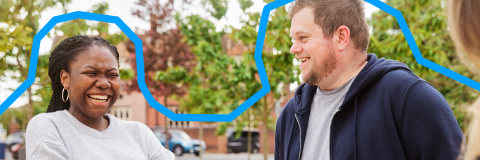
Sidebar navigation

Your Personal Statement
See our checklist for the essentials to include.
Your Personal Statement is a great opportunity for you to introduce yourself and outline why you're a compelling candidate for a course. It should be about 1,000 words, or one side of A4.
In your personal statement, you should demonstrate your enthusiasm for the course and highlight the skills you've gained from your academic studies and your work or life experience. If you're not currently studying you should include information about if you've taken a year out, and why, and details of your current or previous employment.
Your personal statement checklist
Your personal statement should convey your views and be written in your style. To be successful, make sure you're clear, concise and factual. Don't get someone else to write it for you. In your personal statement, you should include the following:
Your reasons for choosing the course
Think about:
- Relevant previous academic study, achievements and projects
- Academics skills you've already developed and want to develop further
- If the course links to your dissertation
- Anything that has significantly influenced your choice
- Why you want to study at the University of Portsmouth - are you interested in a particular research focus or quality of research?
Outline your reasons for doing postgraduate study and specifically the course you've chosen. Demonstrate your enthusiasm for further study and/or research.
Write about relevant previous academic study, achievements and projects. Focus on academic skills you've developed and wish to develop further. Does the course link to your dissertation? Mention anything that significantly influenced your choice. Why do you want to study at the particular institution you're applying to? Are you interested in a particular research focus or quality of research?
Your interest in your chosen subject
Demonstrate that you're clear about what the course will involve. Ask yourself the following questions:
- What is it about this course that interests you?
- Are there any features of this course that particularly attract you and why?
- What sparked your interest in this study area?
- What have you done so far to develop your interest?
- What have you learned about yourself in the process?
Give details of any relevant jobs, work experience, placement or voluntary work you have done. Include the skills and the experience you've gained from these activities.
Reflect on work experience and how this has influenced your choices. What will you bring to the course as a result? Consider the skills you'll need to be successful on your course and give evidence you have these skills.
Your future career plans
Do you have a clear career goal? How does your course choice fit with this? This could demonstrate commitment to the programme to achieve a specific outcome. Where your chosen course is of a vocational nature, this section will be especially important. You'll need to include evidence of work experience and career exploration.
Your social, sports or leisure interests
For some courses it might be useful to provide evidence of additional skills that are useful in your studies. For challenging courses it demonstrates that you have an outlet outside your studies.
International students
If you're an international student you may also like to include the following:
- Your reasons for studying in the UK – this could include the course, research, cultural experience, and/or a desire to improve language skills
- Your language skills – what evidence do you have to show that you can complete a higher education course that is taught in English?
- Evidence of previous studies in an English–speaking environment
Make sure your personal statement is written to a high standard with good spelling and grammar and make sure the meaning is clear. Don't get someone else to write your personal statement for you – you have to demonstrate that you have the right level of English to support your studies.
If you studied your undergraduate degree at the University of Portsmouth, the Careers and Employability Service can offer support with writing your Master's Personal Statement. Find out how you can get feedback on your application.
